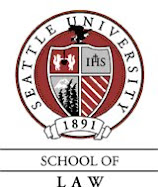The Law School Admission Council's (LSAC) Diversity Committee announces a writing competition to promote diversity in law schools and the legal profession on the following topic:
WHY PIPELINE PROGRAMS TARGETING STUDENTS FROM UNDERREPRESENTED RACIAL AND ETHNIC BACKGROUNDS
ARE ESSENTIAL TO THE FUTURE OF THE LEGAL PROFESSION
LSAC is committed to fostering diversity in law schools and the legal profession. Currently, through its Diversity Committee, LSAC sponsors and funds a number of initiatives aimed at increasing the diversity of the legal profession. These initiatives include organizing national and regional pipeline workshops that promote the development of outreach and early educational programs for students from diverse backgrounds; offering grants to support diversity initiatives at LSAC-member law schools; maintaining databases and websites, such as
DiscoverLaw.org, with information, resources, and programs that encourage students of color, students living with a disability, and LGBTQ students to pursue a legal career and equip them with the tools for successful admission and graduation from law school; and engaging in ongoing collaborative programs and projects with prelaw advisors and students at Historically Black Colleges and Universities (HBCUs), Hispanic Association of Colleges and Universities (HACUs), and Tribal Colleges and Universities (TCUs).
For decades, studies consistently have shown that students of color, students living with a disability, and LGBTQ students are underrepresented in most law schools. As a consequence, smaller percentages of persons who represent these groups are graduating from law school and entering the legal profession. This writing competition is designed to reinvigorate the dialogue about the recruitment and retention strategies that law schools should deploy to yield a more diverse class of graduates who will enter the legal profession.
ENTRY PROCEDURES
Include a cover page with your submission. The cover should only contain the author's name, title of the paper, mailing address, law school affiliation, law school status (lL, 2L, 3L/4L), telephone number where the author may easily be reached, and an email address.
To allow anonymous evaluations, please do not put your name on the actual paper. The title on the paper must precisely match the title on the cover page that contains the identifying information described above.
Email entries to
DiversityOffice@LSAC.org. Only electronic files (PDF or Word) will be accepted.
JUDGING
A panel of law school faculty, legal writing instructors, and LSAC Diversity Committee members will evaluate each submission and select the winning papers. If no paper meets the standards set forth in this announcement, the panel may decide not to issue an award or publish a paper. The panel's decision will be final.
DEADLINE
All papers must be sent no later than 5:00 PM EST on Friday, March 31, 2017. No extensions will be granted under any circumstances. Papers submitted after the deadline will not be eligible for an award. All submissions become the property of LSAC, and LSAC will retain the copyright of any winning papers selected for publication.
ELIGIBILITY
Current JD candidates who are in good standing at LSAC-member law schools are invited to participate.
The length and format of the paper must adhere to the following:
- Up to 20 pages (5,000 words or less)
- 8½ by 11 inch paper
- Double spaced, 1-inch margins, Word format, 12-point font
- Endnotes written in "A Uniform System of Citation" (The Blue Book) format
Evaluation Criteria Essays will be judged according to:
- Research and use of relevant sources and authorities (cases; law review articles; other secondary sources, including, but not limited to, books, newspapers, and magazines; and empirical and sociological studies)
- Quality and clarity of legal analysis, persuasion, and writing
- Understanding, interpretations, and conclusions regarding diversity and the implications of diversity in this context
- Full compliance with all competition procedures
AWARDS
One winning paper will be selected from each of the three (3) qualifying categories of eligible students (1L, 2L, 3L/4L). Each winner will receive a $5,000 cash prize and the winning essays will be posted at
DiscoverLaw.org.
In addition, one winning paper will be submitted for publication in the Journal of Legal Education or similar publication.


